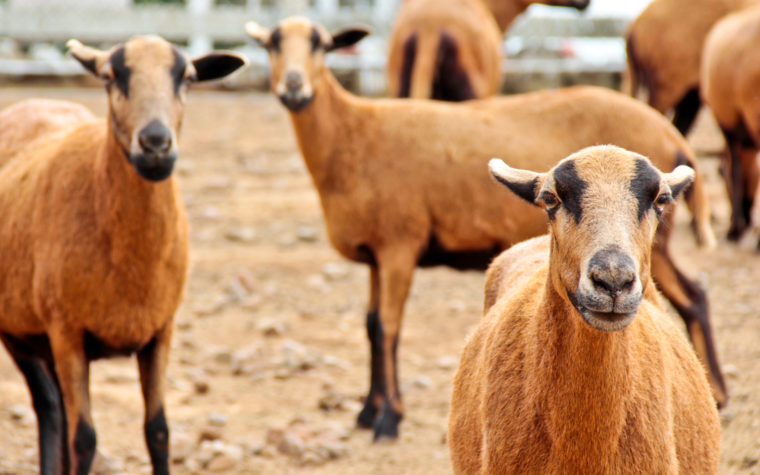The island could soon face an unprecedented shortage of Barbados Blackbelly sheep as farmers struggle to access quality breeding stock, a key spokesman for the farmers claimed on Thursday.
President of the Barbados Sheep Farmers Inc., Rommel Parris, revealed that for the past two years, farmers have been unable to source prime genetic animals from the Greenland Livestock Research Station, the national germplasm bank for the native breed. This issue, he said, has become even more alarming following the recent export of over 200 Blackbelly sheep to Guyana.
Parris said not having the genetic supply from Greenland would mean that the quality and quantity of animals farmers produce would decline.
“Farmers have not been able to purchase animals for two years to help their stock numbers or improve their quality, but yet we can find over 200 sheep to export to Guyana,” he said.
“The maths is not adding up. Farmers who want to increase sheep production can’t get any sheep from Greenland, and it is literally a situation where officers at the Animal Nutrition Unit are directing people to the Sheep Farmers Inc. in order to find sheep in Barbados.”
He expressed concern that the continued exports of the variety, known for its prolific breeding, could lead to a shortage of prime Blackbelly sheep here. A fourth shipment of 295 sheep, including pregnant ewes, left Barbados last month, bringing the total number exported to Guyana to 1 003.
But Blackbelly sheep expert Dr Leroy McClean, a consultant to the Ministry of Agriculture, rejected notions that the export programme would deplete the domestic stock. The initiative, launched in 2022, aims to send around 1 000 sheep to Guyana for breeding and meat production, with carcasses and sheep skins expected to be returned to Barbados.
Parris, referencing Prime Minister Mia Mottley’s 2018 pledge to boost the sheep industry, criticised the focus on exports while farmers struggle to improve their herds.
“Farmers are trying to increase their stock and they are going to Greenland to buy sheep but are being told there are issues, yet we see sheep being exported. Why can’t farmers afford to buy those sheep before they are exported? What is happening to ‘home drums beat first’? No farmer over the past two years was able to buy sheep from Greenland,” he said.
Parris added that there had been no clear communication from the Ministry of Agriculture on what is being done to help farmers improve their herds and boost local production.
“The farmers would love answers as to why this is happening and what is going on with the station. You cannot have a breeding station not providing animals to locals but yet the focus seems to be on collecting sheep for exportation. The focus needs to be on correcting the problems at the station so local farmers can get quality animals for their stock. If we continue to focus on exporting sheep, we are putting the cart before the horse,” he said.
Parris also highlighted concerns among farmers about the lack of concrete data on the success of the export programme.
“We are not aware of any written report or proof that shows what is happening with these animals when they go to Guyana.
We only get a word-of-mouth report and nothing tangible,” he said.
“People want to see specifics, people want to see numbers.
There needs to be some statistical and empirical data that farmers can access to see the exact plan from the ministry, how it is progressing and how it will benefit us. But nothing is there to show, it is as if we are just taking these animals and exporting them. It creates a situation where there will be limited animals available, there will be a shortage,” he said. (SZB)




